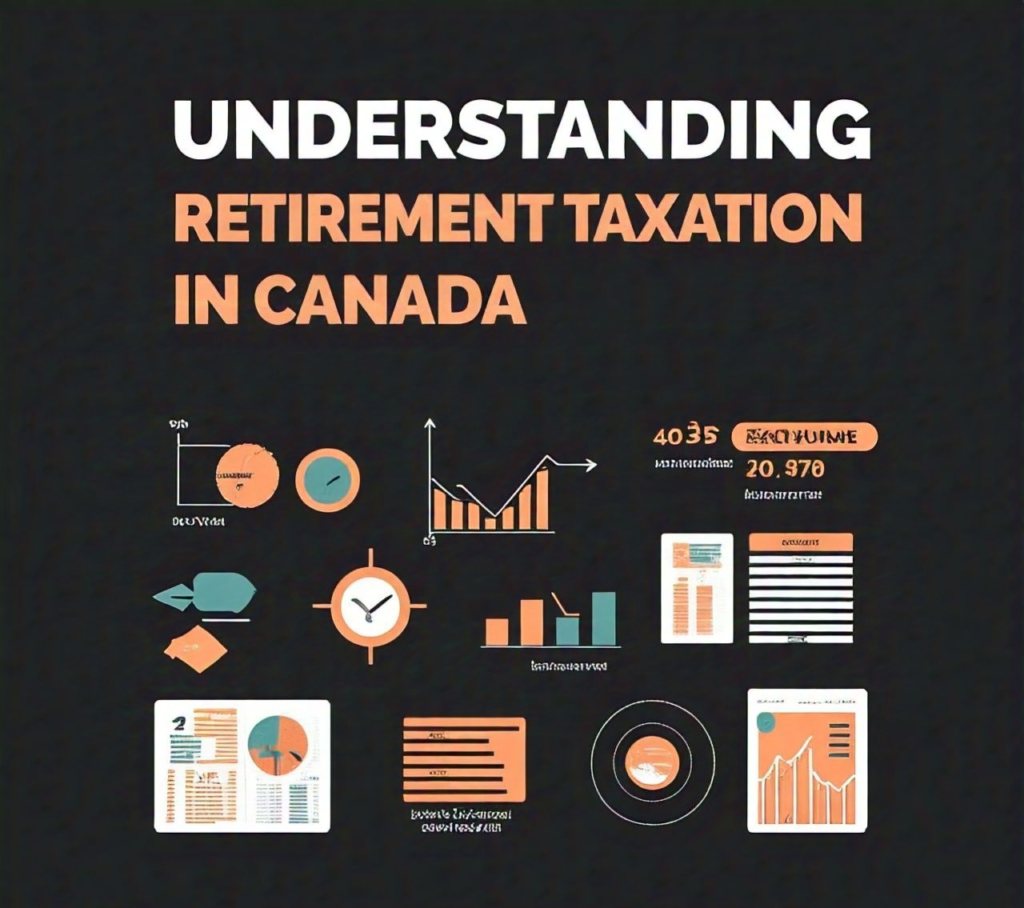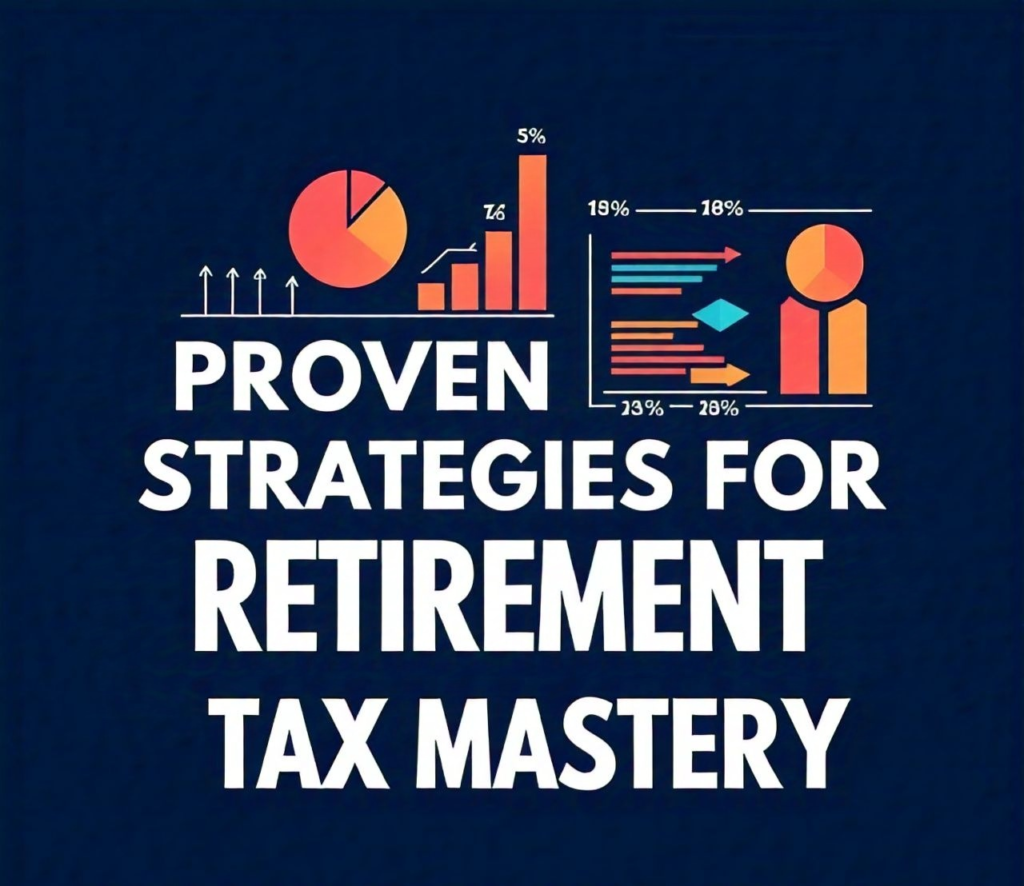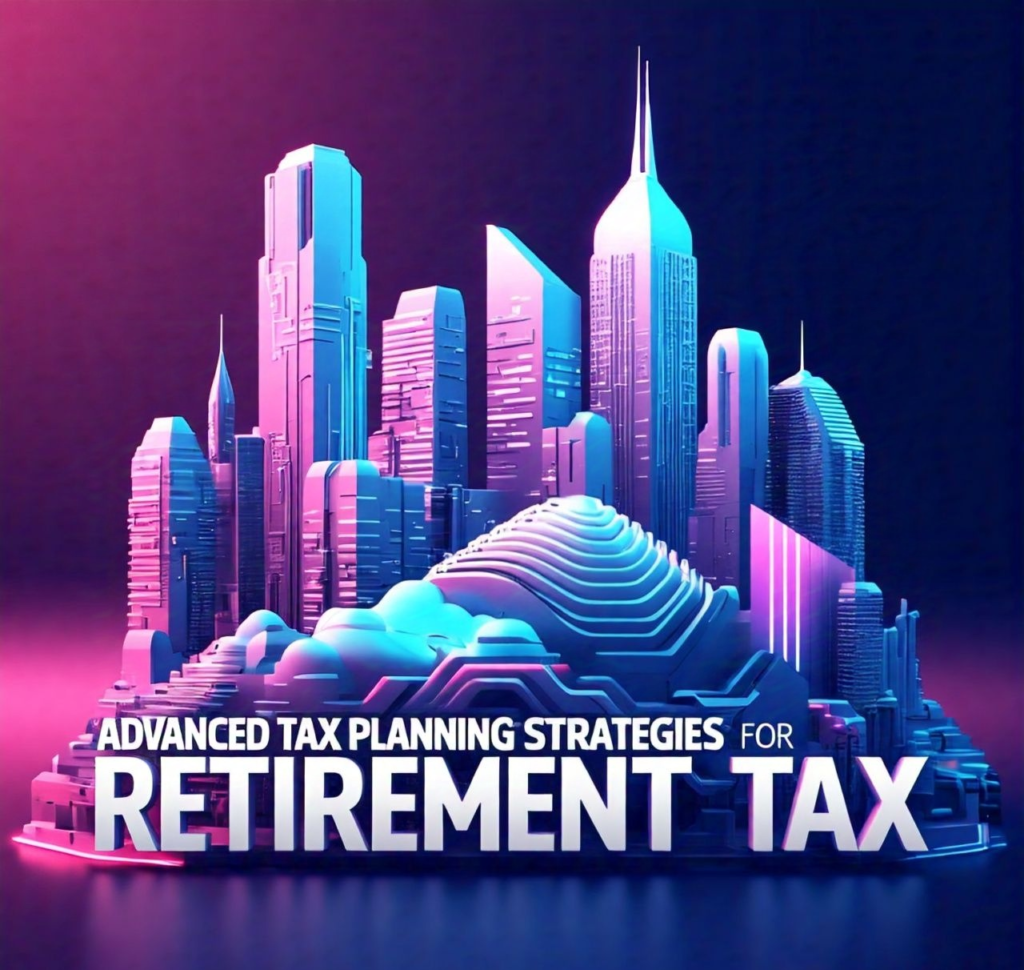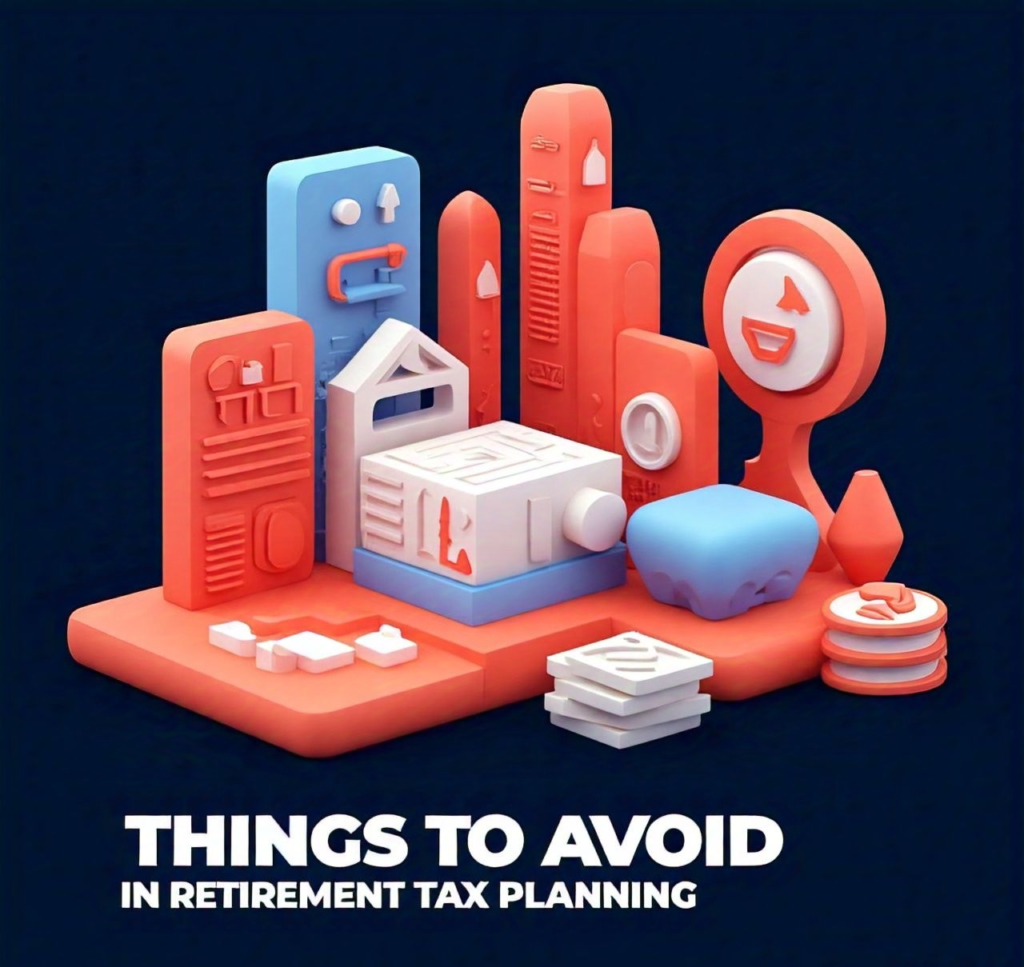RETIREMENT TAX MASTERY: PROVEN STRATEGIES FOR RETIREES TO MAXIMIZE SAVINGS IN 2025
As retirees in Canada, managing your taxes effectively is crucial to maximizing your savings and ensuring a comfortable retirement. With the ever-changing tax landscape, it can be overwhelming to navigate the complexities of retirement taxation. In this comprehensive guide, we’ll explore proven strategies for retirement tax mastery, helping you make the most of your hard-earned savings.
UNDERSTANDING RETIREMENT TAXATION IN CANADA

Before diving into tax-saving strategies, it’s essential to understand the basics of retirement taxation in Canada. Here are some key concepts to grasp:
1. Taxation of Retirement Income: In Canada, retirement income is taxed as ordinary income. This includes income from Registered Retirement Income Funds (RRIFs), annuities, and pension plans.
2. Tax Credits and Deductions: Retirees can claim various tax credits and deductions, such as the Basic Personal Amount, Medical Expense Tax Credit, and Charitable Donations Tax Credit.
3. Old Age Security (OAS) and Guaranteed Income Supplement (GIS): OAS and GIS are government-funded programs providing financial assistance to eligible seniors. While OAS is taxable, GIS is not.
PROVEN STRATEGIES FOR RETIREMENT TAX MASTERY

Now that you have a solid understanding of retirement taxation in Canada, let’s explore some proven strategies for minimizing your tax liability and maximizing your savings:
1. Income Splitting: If you’re married or in a common-law relationship, income splitting can help reduce your combined tax liability. This involves transferring income from one spouse to the other, taking advantage of lower tax brackets.
2. Tax-Loss Harvesting: If you have investments that have declined in value, consider selling them to realize a loss. This can help offset gains from other investments, reducing your tax liability.
3. Charitable Donations: Donating to charity can provide a tax credit, reducing your taxable income. Consider donating securities or other investments to maximize your tax benefit.
4. Registered Retirement Savings Plans (RRSPs): If you haven’t already, consider converting your RRSP to a RRIF or annuity. This can provide a steady income stream while minimizing taxes.
5. Tax-Efficient Investing: Focus on tax-efficient investments, such as index funds or tax-loss harvesting, to minimize taxes on your investment income.
6. Pension Income Splitting: If you receive pension income, consider splitting it with your spouse to reduce your combined tax liability.
7. Medical Expense Tax Credit: If you have significant medical expenses, consider claiming the Medical Expense Tax Credit to reduce your taxable income.
8. Home Renovation Tax Credit: If you’re planning home renovations, consider claiming the Home Renovation Tax Credit to reduce your taxable income.
ADVANCED TAX PLANNING STRATEGIES FOR RETIREMENT TAX

Here’s a detailed explanation of Advanced Tax Planning Strategies for Retirement Tax Mastery:
I. Tax Implications of Withdrawing from RRSPs and RRIFs
1. Withholding Tax: Understand the withholding tax rates on RRSP and RRIF withdrawals.
2. Taxation of Withdrawals: Know how withdrawals are taxed as ordinary income.
3. Minimizing Tax Liability: Strategies to minimize tax liability, such as withdrawing from RRSPs before age 72.
II. Annuities and Insurance Products for Retirement Income
1. Types of Annuities: Understand the different types of annuities, such as fixed, variable, and indexed annuities.
2. Taxation of Annuities: Know how annuity payments are taxed.
3. Insurance Products: Explore insurance products, such as life insurance and critical illness insurance, to provide retirement income.
III. Tax Planning for Estate and Succession Planning
1. Estate Tax Planning: Strategies to minimize estate taxes, such as gifting and estate freezes.
2. Succession Planning: Plan for the transfer of assets to beneficiaries, including tax implications.
3. Charitable Giving: Use charitable giving to reduce estate taxes and create a lasting legacy.
IV. Cross-Border Tax Planning for Canadian Snowbirds
1. US Tax Implications: Understand US tax implications for Canadian snowbirds, including taxation of US-sourced income.
2. Foreign Tax Credits: Claim foreign tax credits to avoid double taxation.
3. Residency and Domicile: Understand the implications of residency and domicile on cross-border taxation.
V. Tax Planning for Retirement Income Sources
1. Taxation of Pensions: Understand the taxation of pension income, including the pension income tax credit.
2. Taxation of RRSPs and RRIFs: Know how RRSP and RRIF withdrawals are taxed.
3. Taxation of Annuities: Understand the taxation of annuity payments.
VI. Tax Planning for Retirement Expenses
1. Medical Expense Tax Credit: Claim the medical expense tax credit for eligible medical expenses.
2. Home Renovation Tax Credit: Claim the home renovation tax credit for eligible home renovations.
3. Charitable Donations: Use charitable donations to reduce taxable income.
VII. Tax Planning for Retirement Income Optimization
1. Income Splitting: Use income splitting to minimize tax liability.
2. Tax-Loss Harvesting: Use tax-loss harvesting to offset capital gains.
3. Tax-Efficient Investing: Use tax-efficient investing strategies to minimize tax liability.
By implementing these advanced tax planning strategies, retirees can optimize their retirement income, minimize tax liability, and maximize savings in 2025. It’s essential to consult with a qualified tax professional or financial advisor to determine the best tax strategies for your specific situation.
FREQUENTLY ASKED QUESTIONS
General Retirement Tax Questions
- What is retirement tax mastery?
Retirement tax mastery refers to the strategies and techniques used to minimize tax liability and maximize savings in retirement.
- Why is tax planning important in retirement?
Tax planning is crucial in retirement as it helps minimize tax liability, maximize savings, and ensure a sustainable income stream.
- What are the key tax considerations in retirement?
Key tax considerations in retirement include taxation of retirement income, tax credits and deductions, and estate and succession planning.
Taxation of Retirement Income
- How is retirement income taxed in Canada?
Retirement income is taxed as ordinary income in Canada, with tax rates ranging from 15% to 33%.
- What types of retirement income are taxable?
Taxable retirement income includes income from Registered Retirement Savings Plans (RRSPs), Registered Retirement Income Funds (RRIFs), pensions, and annuities.
- Are there any tax-free retirement income sources?
Yes, tax-free retirement income sources include Tax-Free Savings Account (TFSA) withdrawals and certain types of life insurance policies.
Tax Credits and Deductions
- What tax credits are available to retirees?
Available tax credits for retirees include the Basic Personal Amount, Medical Expense Tax Credit, and Charitable Donations Tax Credit.
- What deductions can retirees claim?
Retirees can claim deductions for medical expenses, home renovations, and charitable donations.
Estate and Succession Planning
- What is estate planning, and why is it important?
Estate planning involves planning for the distribution of assets after death. It’s essential to minimize estate taxes and ensure a smooth transfer of assets to beneficiaries.
- How can retirees minimize estate taxes?
Retirees can minimize estate taxes through strategies such as gifting, estate freezes, and charitable giving.
Tax Planning Strategies
- What is income splitting, and how can it benefit retirees?
Income splitting involves transferring income from one spouse to another to minimize tax liability. This can benefit retirees by reducing their combined tax liability.
- How can tax-loss harvesting help retirees?
Tax-loss harvesting involves selling investments at a loss to offset gains. This can help retirees minimize tax liability and maximize savings.
Consulting a Tax Professional
- Why should retirees consult a tax professional?
Retirees should consult a tax professional to ensure they’re taking advantage of all available tax savings opportunities and to minimize tax liability.
- What questions should retirees ask a tax professional?
Retirees should ask a tax professional about their specific tax situation, available tax credits and deductions, and strategies to minimize tax liability.
By understanding these questions, retirees can better navigate the complexities of retirement taxation and make informed decisions to maximize their savings in 2025.
THINGS TO AVOID IN RETIREMENT TAX PLANNING

Here are some common mistakes to avoid in retirement tax planning:
- Lack of Planning
1. Not having a tax plan: Failing to create a tax plan can lead to missed opportunities for tax savings and unintended tax consequences.
2. Not considering tax implications: Not considering tax implications when making financial decisions can lead to unexpected tax liabilities.
- Inefficient Withdrawal Strategies
1. Withdrawing from tax-deferred accounts too early: Withdrawing from tax-deferred accounts, such as RRSPs, too early can lead to unnecessary taxes and penalties.
2. Not considering tax implications of withdrawals: Not considering tax implications when withdrawing from tax-deferred accounts can lead to unexpected tax liabilities.
- Not Optimizing Tax Credits and Deductions
1. Not claiming available tax credits: Failing to claim available tax credits, such as the Basic Personal Amount or Medical Expense Tax Credit, can lead to missed opportunities for tax savings.
2. Not maximizing charitable donations: Not maximizing charitable donations can lead to missed opportunities for tax savings.
- Poor Investment Strategies
1. Not considering tax implications of investments: Not considering tax implications when making investment decisions can lead to unexpected tax liabilities.
2. Not diversifying investments: Not diversifying investments can lead to unnecessary risk and potential tax liabilities.
- Not Staying Up-to-Date with Tax Changes
1. Not staying informed about tax changes: Not staying informed about tax changes can lead to missed opportunities for tax savings and unintended tax consequences.
2. Not adjusting tax plan accordingly: Not adjusting tax plan accordingly can lead to missed opportunities for tax savings and unintended tax consequences.
- Not Seeking Professional Advice
1. Not consulting a tax professional: Not consulting a tax professional can lead to missed opportunities for tax savings and unintended tax consequences.
2. Not seeking advice from a financial advisor: Not seeking advice from a financial advisor can lead to missed opportunities for tax savings and unintended tax consequences.
By avoiding these common mistakes, retirees can create an effective tax plan, minimize tax liabilities, and maximize savings in 2025.
CONCLUSION
Retirement tax mastery requires a deep understanding of Canada’s tax system and a well-thought-out strategy. By implementing the proven strategies outlined in this guide, you can minimize your tax liability and maximize your savings. Remember to seek professional advice, consider tax implications, and stay up-to-date with tax changes to ensure a comfortable and secure retirement.
Retirement tax mastery is a crucial aspect of ensuring a comfortable and sustainable retirement. By understanding the complexities of Canada’s tax system and implementing proven strategies, retirees can minimize tax liabilities, maximize savings, and achieve their retirement goals.
KEY TAKEAWAYS
1. Tax planning is essential: A well-thought-out tax plan can help retirees minimize tax liabilities and maximize savings.
2. Understand tax implications: Retirees must understand the tax implications of their retirement income sources, including RRSPs, RRIFs, pensions, and annuities.
3. Optimize tax credits and deductions: Retirees should optimize tax credits and deductions, such as the Basic Personal Amount, Medical Expense Tax Credit, and Charitable Donations Tax Credit.
4. Invest wisely: Retirees should invest wisely, considering tax implications and diversifying their investments to minimize risk.
5. Stay informed: Retirees should stay informed about tax changes and adjust their tax plan accordingly.
FINAL THOUGHTS
Retirement tax mastery requires a proactive and informed approach. By following the proven strategies outlined in this guide, retirees can achieve their retirement goals and enjoy a comfortable and sustainable retirement.
CALL TO ACTION
If you’re looking for personalized advice on retirement tax planning, consider booking a consultation with our qualified tax professional or financial advisor in Ontario at [email protected]. They can help you create a customized tax plan tailored to your unique needs and goals.
ABOUT AUTHOR
Shanel John is a dedicated Certified Public Accountant (CPA) at G.L.H. Accounting, specializing in Income Tax with 10 years of experience. Based in Brampton, Ontario, Canada, Shanel offers expertise in tax preparation, financial accounting, and advisory services. A certified QBO Pro Advisor, Shanel’s decade-long experience and knowledge make her a trusted figure in the accounting field.
ADDITIONAL RESOURCES
For more information on retirement tax planning, visit:
– CANADA REVENUE AGENCY (CRA): http://www.cra-arc.gc.ca/
– FINANCIAL PLANNING STANDARDS COUNCIL (FPSC): https://www.fpcanada.ca/
– GOVERNMENT OF CANADA – RETIREMENT INCOME: https://www.canada.ca/en/services/retirement.html
– TAX-FREE SAVINGS ACCOUNT (TFSA): https://www.canada.ca/en/revenue-agency/services/forms-publications/publications/rc4466/tax-free-savings-account-tfsa-guide-individuals.html
– OLD AGE SECURITY (OAS) AND GUARANTEED INCOME SUPPLEMENT (GIS): www.canada.ca/en/services/benefits/publicpensions/cpp/old-age-security.html
By staying informed and proactive, retirees can master the complexities of retirement taxation and achieve their retirement goals.

